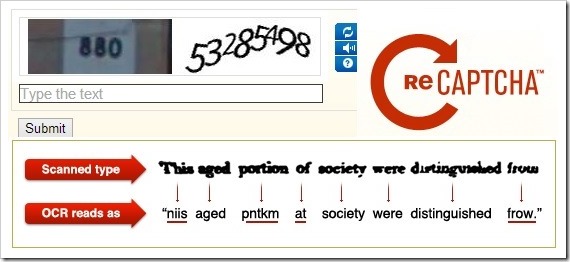Bots Beware! Google Updating reCAPTCHA To Make It Tougher For Bots!
Whenever we pass through a site where we have to book a ticket or perhaps we are creating an account, we all go through a small question- “Are you a human?” This question is supposed to be answered by giving a correct answer to probably one of the easiest questions you have ever faced since kindergarten.
Many of you might not consider it important. Why would you, it is so easy. A few might even consider it a time waste.
From the company’s point of view however, it is one of the most important savior in the internet world. It is the wall that saves their servers from crashing every day because of fake entries.
Bots, as you might have guessed are not humans. They are programs generated by people that can work on a specific task repeatedly. For example, Google uses web crawlers to index the internet due to which we can get millions of pages for our queries. These web crawlers are bots.
Similarly, there can be bots that can be used to do other things including creating fake accounts and even paying for any ticket. Any process that can be repeated can be taught to a bot. It is like creating a macro in excel.
Unlike a human however, a bot (or a script) can be run over and over again and even multiple bots can run simultaneously. This means the bots can take up all the server time and even crash it.
Enters CAPTCHA and reCAPTCHA! They add a simple layer of a question that can’t be answered by a bot. Thus the process breaks and voila! All is well in the internet world. This is a question that changes every time, is simple enough for any human and very tough for bots. Read this whitepaper for the science behind it.

Currently the most seen is two texts – One is readable by both the bots and the humans while other is slightly distorted in a way that bots can’t recognize it while a human can easily read it. Sometimes the first one is not present and only a single text is present (irctc).
While this has served us great so far there are two issues that are creeping up. First is that the CAPTCHA’s are sometimes too difficult and distorted for the humans as well. The remedy for this is to refresh to get a new image so it is tolerable.
The second is that the AI (Artificial Intelligence) is becoming smarter at deciphering the CAPTCHAs.
In Google’s words-
“Over the last few years advances in artificial intelligence have reduced the gap between human and machine capabilities in deciphering distorted text.” Google’s security team has been working to improve this situation.
Now, they have come up with an updated system that uses advanced risk analysis techniques. Instead of just the answer, the whole interaction of the user with CAPTCHA (before, during and after) is considered to determine whether he is human or not. This way, the question can be made easier as it serves not as the key but a mere medium to get information of user behavior. Thus, CAPTCHA will become easier for humans while becoming even more difficult for the bots to crack.
Google says that over the next few months, even more updates will be in order.
What is your opinion? Have you ever considered the importance of CAPTCHAs?

Google is geared up to tackle all probable issues. The innate strength of their technical and managerial teams have made almost everything possible, though we believe that they are also “Miles to go before I sleep”.
An highlight of the google updates may be found at http://www.knowledgemart.org/internet/google-updates-reemphasizing-on-niche-content/